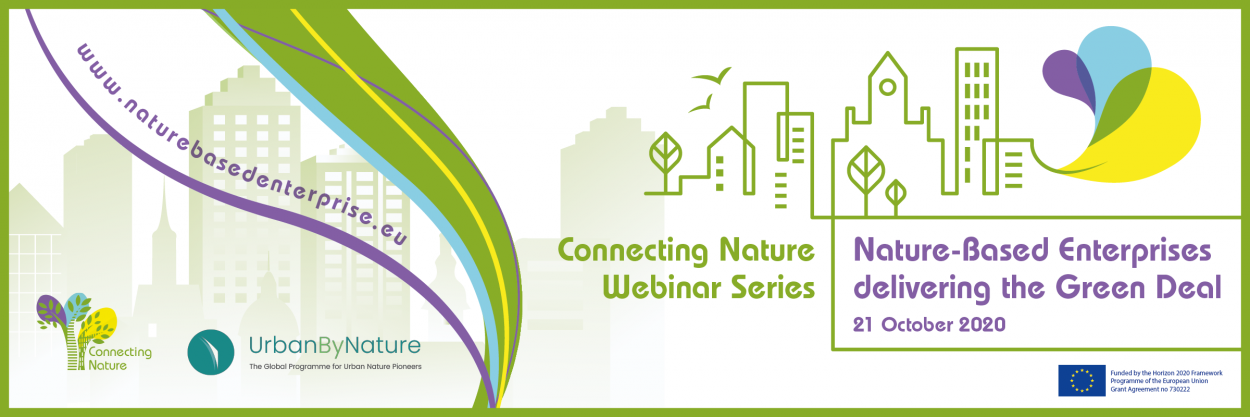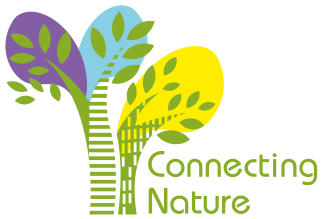
Hundreds of participants from 36 countries around the world – from Spain to Singapore, and from Poland to the Philippines – tuned in today for the launch of the Connecting Nature Enterprise Platform [Wednesday 21st October 2020]. This novel marketplace aims to directly connect increasing global market demand for nature-based solutions (from public and private sector ‘buyers’) with supply (innovative enterprises developing new sustainable nature-based solutions).
The benefits of nature-based solutions such as living roofs and walls, sustainable drainage systems, natural wastewater treatments, constructed wetlands and so on, are well known for citizens and the environment. However the economic potential of nature-based solutions has been less well explored until now.
The Connecting Nature Enterprise Platform which was launched by John Bell, Director of Healthy Planet, DG Research & Innovation at the European Commission, and Hazel Chu, Lord Mayor of Dublin puts the spotlight firmly on the potential of nature-based enterprises as an emerging industry sector.
The platform has been created building on a collaboration between Trinity and UCD, whose pioneering global research is focused on the potential of nature-based enterprises to contribute to the net-zero economy of the future. By bringing together under the common heading of nature-based enterprises a number of existing market sectors from landscape architecture to green building construction, the potential of this industry sector as a source of employment and sustainable economic growth can be seen.
Connecting Nature, led by Trinity, is a five-year €12m Horizon 2020 project focusing on the large-scale implementation of nature-based solutions to build climate resilience in cities. Endorsed by the UN and EC, demand for nature-based solutions has increased exponentially in recent years in line with recognition that they could provide up to 30% of the mitigation required to stabilise global warming to below 2oC[1].
However, the roadblock emerging now is that there are not enough skilled and experienced suppliers to meet this burgeoning demand[2] To address this, Trinity and UCD have been collaborating together in a new field of research into the capacity of private sector nature-based enterprises to meet this demand.
Based on this research and in collaboration with Horizon Nua, a Dublin-based not-for-profit organisation, the Connecting Nature Enterprise Platform, has been developed to directly connect market demand (cities and private sector ‘buyers’ of nature-based solutions) with supply (innovative enterprises developing new sustainable nature-based solutions) on a global scale.
In launching the platform, John Bell, Director, Healthy Planet, European Commission, said:
“The Recovery Plan and the wall of investment which is coming – the largest since the Marshall Plan – will be looking for new ways in which business and economic opportunities can respond to setting out what the geography and economy and society of the future can be in new businesses, value chains, innovations and platforms.
“This is a great opportunity to show Dublin as a leading place in setting the relationship between innovative cities and the private sector – applying, testing and buying nature-based solutions. The nature-based enterprises which feature on this platform can offer really significant potential to deliver on the ambitions of the Green Deal and indeed the EU Recovery Plan.”
Speaking at the launch, Hazel Chu, Lord Mayor of Dublin, said:
“We welcome the launch of the Connecting Nature Enterprise Platform, which connects the global marketplace for nature-based solutions. In Dublin, we are committed as a city to realising the potential of the nature-based economy as evidenced by the plans for deployment of nature-based solutions set out in our Climate Action Plan. We see the potential from this sector to upskill our workers, generate new sources of employment and attract investment from companies with a green corporate agenda.”
Siobhan McQuaid, lead researcher from the Trinity Centre of Social Innovation, welcomed the interest of the public and private sector in this research. She said:
“To date investment in nature has largely been led by the public sector. Our research and the Connecting Nature Enterprise Platform identify clearly the potential for those within the private sector to become involved both as investors in nature and as suppliers of innovative nature-based products and services. We hope this research will lead to further studies on the potential of the nature-based economy.”
As the coordinator of the Connecting Nature Horizon 2020 project, Professor Marcus Collier, from Trinity’s School of Natural Sciences, said:
“Nature-based solutions have the potential for realising multiple co-benefits from greening our cities – something that has become the subject of public discourse since the restrictions of COVID-19 were imposed. Regreening our cities can go hand in hand with regreening our economy, and nature-based enterprises are an excellent opportunity for establishing a new model for this.
“It is especially pleasing for me to see such a new innovation emerging from the close collaboration between the School of Natural Sciences and the Trinity Business School.”
For more information about the Connecting Nature Enterprise Platform, see: https://www.naturebasedenterprise.eu/. For more information about the Connecting Nature project, see: https://connectingnature.eu or email info@connectingnature.eu.
[1] Seddon et al (2019) “Nature-based solutions in nationally determined contributions : synthesis and recommendations for enhancing climate ambition and action by 2020” https://portals.iucn.org/library/node/48525
[2] EC (2020) “Public procurement of nature-based solutions. Addressing barriers to the procurement of urban NBS : case studies and recommendations”
https://op.europa.eu/en/publication-detail/-/publication/d75b2354-11bc-11eb-9a54-01aa75ed71a1
